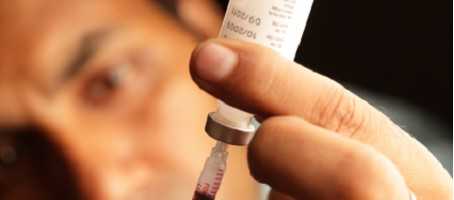A team in Germany have created a single compound then when given as a weekly injectio, can reportedly cure obesity and type 2 diabetes.
The Research Centre for Environmental Health in Munich’s single compound can connect three naturally-occurring hormones (GLP-1, GIP and glucagon) that serve to lower blood sugar levels and food cravings.
A weekly injection of the compound leads to dramatic weight loss, which reduced the amount of food people want to eat and burns off what they have eaten more quickly.
Curing type 2 diabetes
Tests on rats have seen type 2 diabetes and obesity cured, but the researchers say testing on humans will require another two years of testing.
If this testing proves successful, the compound, which mirrors the effects of gastric weight loss surgery by altering the way hormones work, could be available for people with type 2 diabetes by 2020.
After just two weeks of treatment, the compound was found to reduce the body weight of the rats by 30 per cent, with researchers optimistic they may have harnessed the power of a ‘super drug’.
“We really hope it can live up to the nickname of a ‘super drug’ because there has been nothing reported to date with this potency and this efficacy,” said study lead author Dr Brian Finan.
Caution
Research of this drug is still at quite an early stage, with Dr Richard Elliot of Diabetes UK warning: “Further clinical trials will be needed to ensure that such treatments are safe and effective in humans.
“The best way to manage type 2 diabetes is by maintaining a healthy weight by eating a healthy balanced diet, exercising regularly and taking prescribed medication.”
What's new on the forum? ⭐️
Get our free newsletters
Stay up to date with the latest news, research and breakthroughs.




